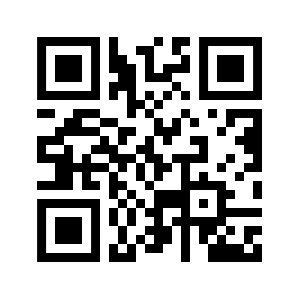Yes, there are various types of African divination practices that could easily be adapted into an app, much like the Cowrie Shell divination we’ve discussed. Many African cultures have rich, symbolic systems for reading the future, understanding situations, or providing guidance through spiritual means. Below are a few examples of African divination systems that could be transformed into interactive apps: 1. Ifá Divination (Yoruba Tradition) Ifá is one of the most prominent divination systems in the Yoruba religion, practiced in West Africa and the Americas. It involves a complex process using palm nuts, cowrie shells, or binary casting. An Ifá priest or diviner uses these items to interpret patterns and provide wisdom. How the App Could Work: Input: The user might provide a specific question or focus area (like love, career, health). Divination Process: The app can randomly simulate the casting of Ifá’s palm nuts or use the traditional binary system (even vs. odd, or heads vs. tails). Result: The app would generate an Odu (the result of the divination) and provide a spiritual interpretation of it, with an optional audio narration of the message. Example App Flow: User asks a question (e.g., “What does the future hold for my career?”). The app simulates the Ifá casting process, randomly generating patterns. The app returns an Odu (a spiritual or prophetic message) and interprets it, such as: “Ogun, the god of iron, reveals that you must face your fears of failure before your success will come.” Play button to read the result aloud. --- 2. Afa Divination (Haitian Vodou/West African) Afa is a divination system used primarily in West Africa, especially in Ghana, and is related to Ifá but can be performed in different ways, often through cowrie shells or casting stones. The diviner reads the patterns of the shells or stones to give insight. How the App Could Work: Input: The user asks a question or gives a focus. Divination Process: Simulate the Afa casting with a random arrangement of cowrie shells or stones. Result: The app returns a pattern or reading based on traditional Afa methods and gives advice or warnings, interpreted by the app. Example App Flow: User inputs a question (e.g., “Should I move to a new city?”). The app randomly generates a stone or shell pattern. The result could be a message like: “A strong pattern of closed shells suggests uncertainty—wait for clearer signs before making a move.” Audio output explains the reading. --- 3. Dagara Divination (West Africa) The Dagara people from Burkina Faso and surrounding areas practice divination using sacred stones, seeds, or other natural elements, often relying on a spiritual guide to interpret the messages. This system is based heavily on nature and ancestral spirits. How the App Could Work: Input: The user types in a question or a concern. Divination Process: Simulate the casting of sacred seeds or stones, or use an interactive nature-based symbol system. Result: Return a reading with specific advice tied to elements of nature (earth, water, fire, air). Example App Flow: User asks a question like “Should I trust this new opportunity?” The app “casts” seeds or stones, creating a specific natural pattern. The result could look like: “The stones show imbalance in the earth sector, advising caution with this opportunity until you align with your roots.” Text-to-speech then narrates the message to the user. --- 4. Nguni or Zulu Divination (Ubungoma) Ubungoma is a traditional Zulu divination practice. Diviners (called isangoma) use bones, shells, or stones to interpret the messages of the ancestors. The diviner throws the bones or objects and interprets the patterns they form. How the App Could Work: Input: The user provides a question or area of focus. Divination Process: The app simulates a bone or stone throw to create a pattern, akin to the real-life divination technique. Result: Return a divination message based on the pattern of the bones or stones, interpreting messages from ancestors or spirits. Example App Flow: User asks, “What should I focus on in my life right now?” The app randomly generates a bone throw (e.g., “A pile of stones close together suggests grounding and a focus on home or family.”). Play button reads the interpretation aloud, giving advice like: “Seek balance and trust in your ancestral guidance; the answers are close to you.” --- 5. Adinkra Symbols Divination (Ghanaian) Adinkra symbols are visual symbols used in Ghanaian culture, each carrying a specific meaning. The symbols can be used for divination by casting them or interpreting their meanings based on how they appear in certain patterns. How the App Could Work: Input: The user provides a question or topic. Divination Process: The app randomly selects and displays a few Adinkra symbols. Result: The app will explain the meaning of each symbol chosen and tie them into an interpretation of the user's question. Example App Flow: User asks, “What should I focus on to improve my health?” The app displays symbols like “Duafe” (beauty and health), and “Eban” (safety and security). The result could be: “The symbols reveal the need for self-care and protection, both mentally and physically. Create a secure space for healing.” Audio plays to read the message aloud. --- Step 6: How to Build the App: 1. Divination Process Simulation: Create a random number generator or use randomization methods to simulate the casting of divination tools like stones, shells, or symbols. 2. Interpretation Algorithm: Develop an interpretation logic for each system (e.g., Ifá, Afa, Nguni) that returns relevant, culturally appropriate advice or wisdom based on the patterns generated. 3. Text-to-Speech (TTS) Integration: Use TTS libraries (like SpeechSynthesis in web apps or native Android/iOS TTS features) to read the results aloud. 4. User Interface (UI): Design an easy-to-use interface with buttons for initiating the divination process and a play button for listening to the result. Example of App Flow: User provides a question. The app generates a divination result. Text and audio interpretations are provided. User can replay the result via the play button. --- Conclusion: Creating an app for African divination practices like Ifá, Afa, or Ubungoma is absolutely possible. The concept would involve random generation of symbols, stones, shells, or other culturally specific items, followed by an interpretation system that aligns with the traditions of the practice. By incorporating text-to-speech functionality, it can allow users to experience the wisdom of these systems in a more immersive, hands-free way. This kind of app would combine technology with ancient practices, making these traditional methods more accessible and interactive.
Yes, there are various types of African divination practices that could easily be adapted into an app, much like the Cowrie Shell divination we’ve discussed. Many African cultures have rich, symbolic ...
526
0
0
0

@moclapz
Builder
Comments (0)
No comments yet
